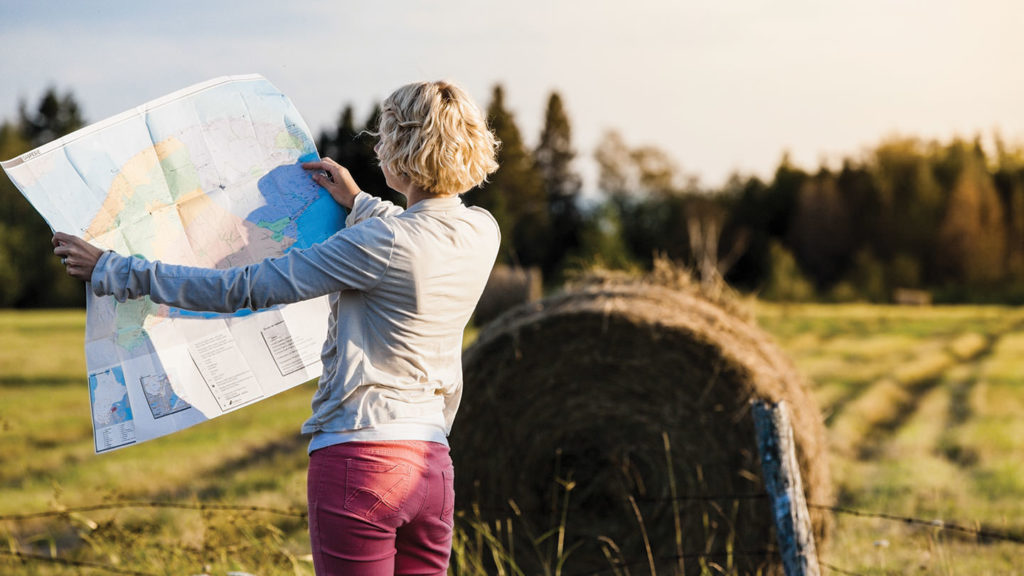Recently updated on April 29th, 2025 at 03:13 pm
Happy as a worm, donkeys talking about ears, throwing dogs at someone… Spanish have some ‘colorful’ expressions. Thankfully, a visit to Spain with one of our Spanish language experts or native speakers means you won’t get lost in translation. Regardless, if you’re visiting any Spanish speaking countries it’s always good to learn some Spanish, the fourth most spoken language in the world! Set the tone for a bueno vacation with these 22 useful Spanish phrases.
1. ¡Hola! ¿Que tal?


Let’s start with the basics of useful Spanish phrases: “Hello, how are you?” Be prepared to back that up with a Bien, gracias (I’m fine, thank you) in response to being greeted in return. The Spanish are not particularly known for their English proficiency, but a friendly smile and an effort to greet them in their own language will go a long way to ensuring you get on the right side of your hosts.
2. Por favor and Gracias
Please and thank you – Polite interactions are made of these, no matter what language you’re conversing in. Take note however that in the Catalan region of Spain, the locals have a tendency to pronounce their ‘c’ as a ‘thee’. So, place your tongue on the tip of your top incisors and practice “gra-thee-as” to say thank you. If you say gracias and hear a de nada in return, this simply means it’s nothing.
3. ¿Habla inglés?


This is one of the best phrases to have in your arsenal, on the off chance you encounter a Spaniard who speaks English. Try with your new acquaintance to see if you can find some common ground in English. If their response is a vigorous shaking of their head, a simple “yo no entiendo” (I don’t understand) will buy you some time.
4. Yo quiero
“I want” – the first two words guaranteed to get you what you need, even if you end up just pointing at something.
5. ¿Dónde está?


Similarly, these two words meaning “where is…?”, and then all you need to say is the thing you’re looking for. If you’re out at a restaurant, you may want to combine this with el baño to make ¿Dónde está el baño? – Where is the bathroom?
We think you’ll also like: How to spend 48 hours in Barcelona, Spain
6. Estoy perdido
Part of the magic of travel is getting a little lost. But if you really need a bit of help, confessing “I am lost” is one of those useful and basic Spanish phrases that’ll help people relate to you instantly. Combine this with the previous question in Spanish, Donda está, so you’re able to find your way again. Make sure you have the name of your hotel on hand so that your Spanish helper can put you on the right path.
7. Tengo alergia…
This phrase – “I have an allergy” – can quite literally save your life! If all else fails, prepare the allergy written in Spanish on your phone or on a card so you can present it after using this easy Spanish phrase.
8. ¿Cuánto cuesta?


One of the most common Spanish phrases for those shopaholic travelers in search of some retail therapy during their visit to Spain. This useful Spanish phrase “how much is it?” asks how much something costs. Like the other examples here, a healthy amount of pointing and gesturing will help the Spaniard understand what object you’re talking about.
9. Knowing your left from your right
Step aside Siri, you can always trust a Spaniard to set you on the right path. In Spanish, “to the left” is “a la izquierda”, while “to the right” is “a la derecha”. The latter is not to be confused with the word “derecho”, which means straight ahead. The detail is in the masculine/feminine ending of the word.
10. ¿Qué me recomienda?


Who better to guide your culinary experience in Spain than your local hosts? One of the best Spanish phrases for travel is “what would you recommend?” You may have no idea what’s about to arrive on your table, but it’s guaranteed to be delicious.
11. ¿Puede ayudarme?
One of the useful Spanish phrases to be kept front of mind at all times is this basic Spanish phrase, which means “can you help me?”. You can also say “I need help”, (necesito ayuda). Puede is a really useful Spanish word to remember, it just means ‘can you’. To make it about yourself, change the e for an o to make puedo. You can use this for things like Puedo reservar una mesa (can I reserve a table) and other slightly more advanced conversations.
12. Cómo…
Cómo (with the accent) is one of the key Spanish question words, and means different things in different contexts. A good rule of thumb is to think of it as meaning ‘how’. Cómo te llamas is used when asking someone their name, literally meaning “How are you called?” (informal tense), and cómo estás means “how are you?”. Yes, lo siento (I’m sorry) to make things more confusing, but there are other ways to say ‘How are you?’ than just ¿Que tal? We do the same in English too, though. We say “what’s up”, “how’s it going”, “how are you doing”, “how are you” and they all still mean the exact same thing!
Listen out for cómo, which is used as the base for so many questions and phrases in Spanish.


13. No entiendo
Telling someone ‘I don’t understand’ is a good one to have in your locker, so you can politely let someone know you’re not following along. You can combine that with a lo siento. This way, you’re sure to avoid awkward silences when faced with a conversation you can’t understand.
14. Perdón
For minor mistakes, it’s best to say “Pardon me”, for instances when you’ve bumped into someone in the street, or accidentally jumped someone in the queue. For anything more major, lo siento is a more serious apology.
15. Buenos días, buenas tardes, buenos noches
There are specific rules around the times that you should say good morning, good afternoon and goodnight in Spain. Buenos días is used in the morning and until lunchtime (around 2pm). Buenas tardes is used until around 8 o’clock, and from then on buenas noches is used (depending on daylight).
16. No hablo Español
Hopefully you won’t need this one, given you’ve read this blog (and you’re definitely going to memorize all these handy Spanish phrases – right?), but knowing how to say “I don’t speak Spanish” is a good phrase to have at your emergency disposal for when you don’t know how to reply to a Spanish-speaker.
17. Una mesa para dos, tres, cuatro
A handy one for when you’re eating out, whether you’re calling up a restaurant or heading into a tapas bar that caught your eye: Ask for “a table for two, three, four…” – and don’t forget to add “por favor” at the end!
18. La cuenta, por favor
Ready to call it a night after your dinner plans? Then ask for “The bill, please”. It beats miming and pretending to scribble on a piece of paper at your waiter from across the restaurant.
19. ¿Qué hora es?
Literally meaning “what hour is it?” (but more colloquially meaning “what time is it?”), this is a good one to know just in case the worst happens – you’re lost in Spain without a watch or phone, and need to get to your tapas reservation on time.
20. Mucho gusto
Mucho gusto literally means “much pleasure” or “great pleasure”, but in Spanish, it’s just a common way to say “nice to meet you” – use it in situations when you would say “pleased to meet you” in English.
21. And kings of Spanish phrases – Sí or No
Last, but not least, the best phrases to keep on hand are a simple yes and no. Of course, it’s not nearly as easy as saying yes or no. The Spanish are said to have a multitude of ways of saying ‘yes’ – sin duda (without a doubt), dale (hit it) and claro (of course)
And, there you have it – a masterclass in useful Spanish phrases to jot down before your next visit to la España. These are our favorite phrases for travel, but you’ll likely have others you’d like to share with your fellow travelers. Our final bit of advice is to lean on technology. Translation apps may not be perfect, but they’re certainly better than nothing. Download Google Translate, iTranslate or TripLingo before your visit to Spain as a handy back-up.
Adiós por ahora!
GET INSPIRED: Visit the Best of Spain